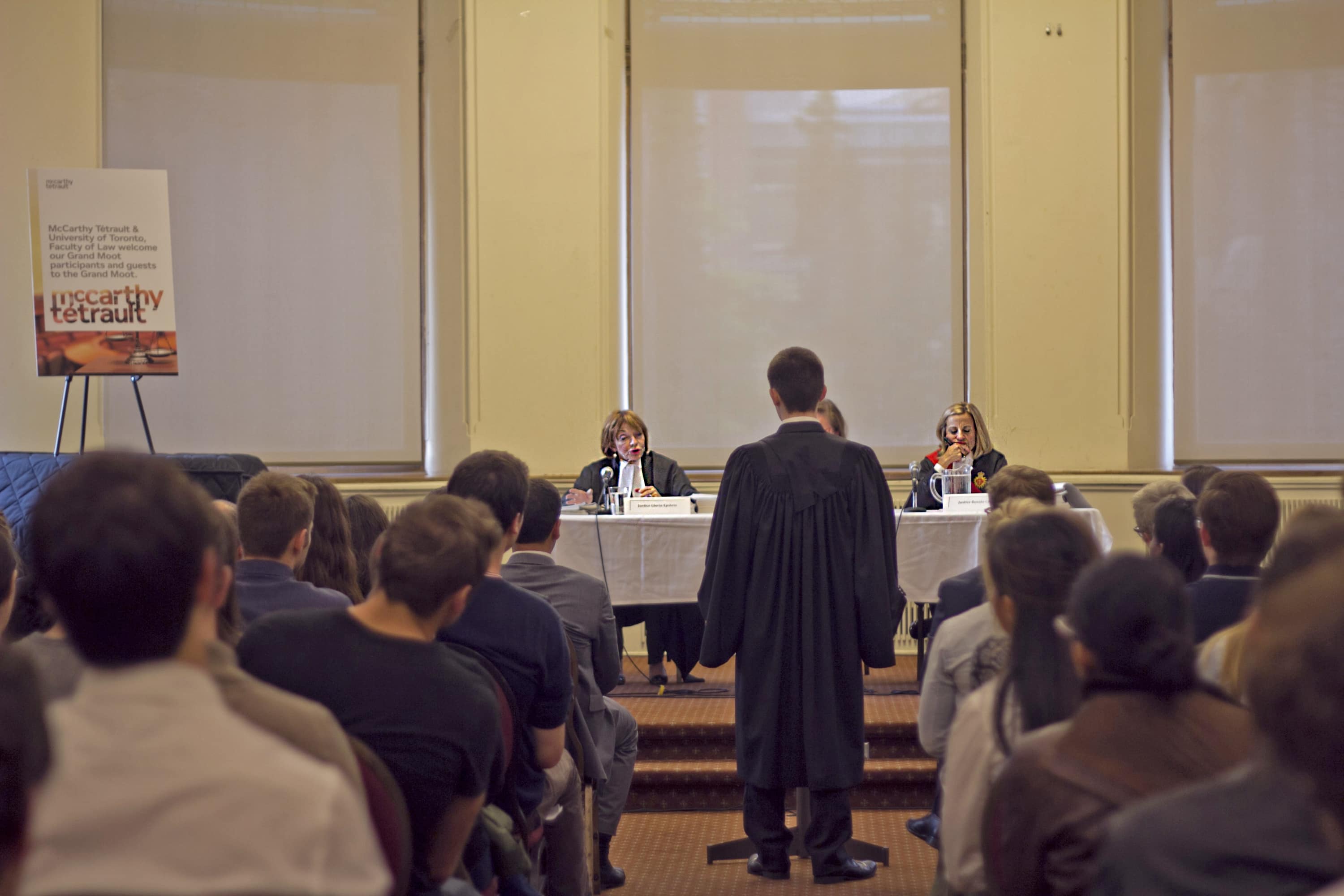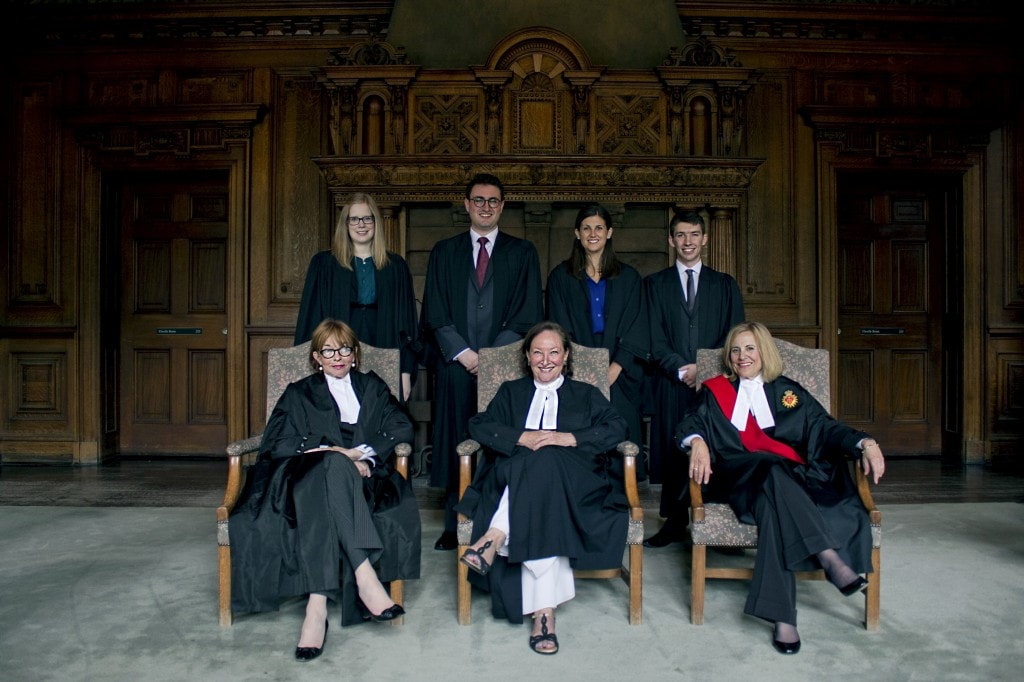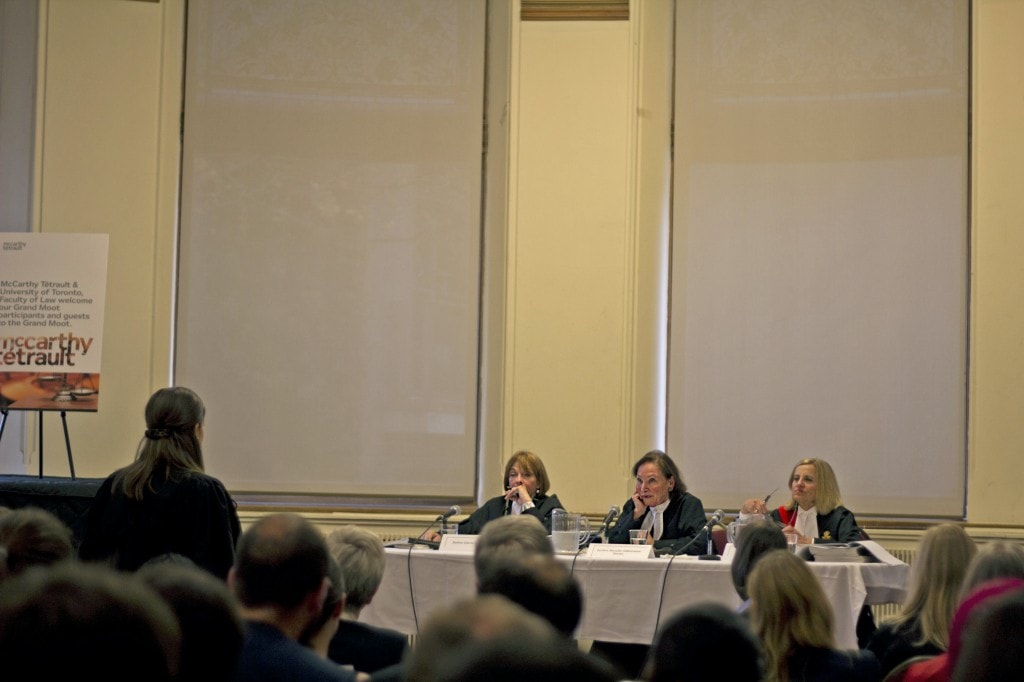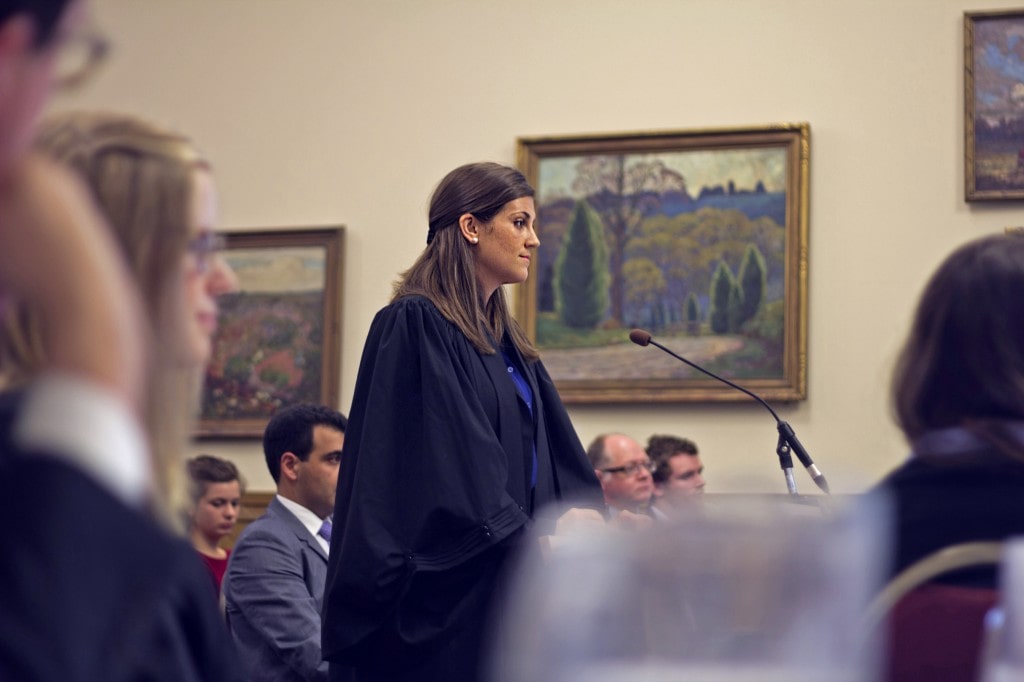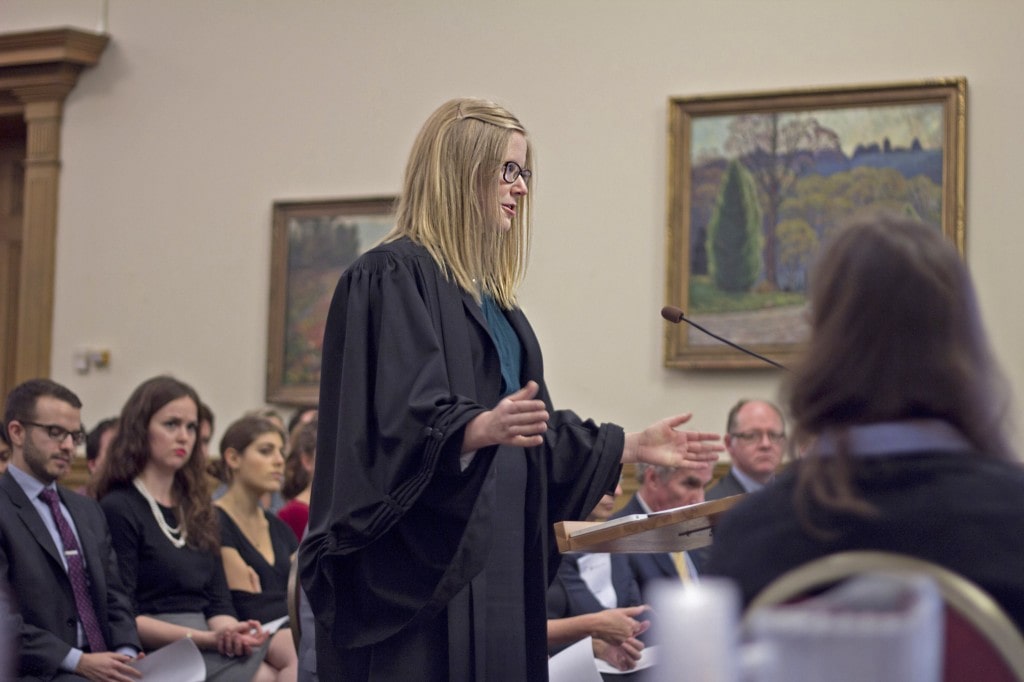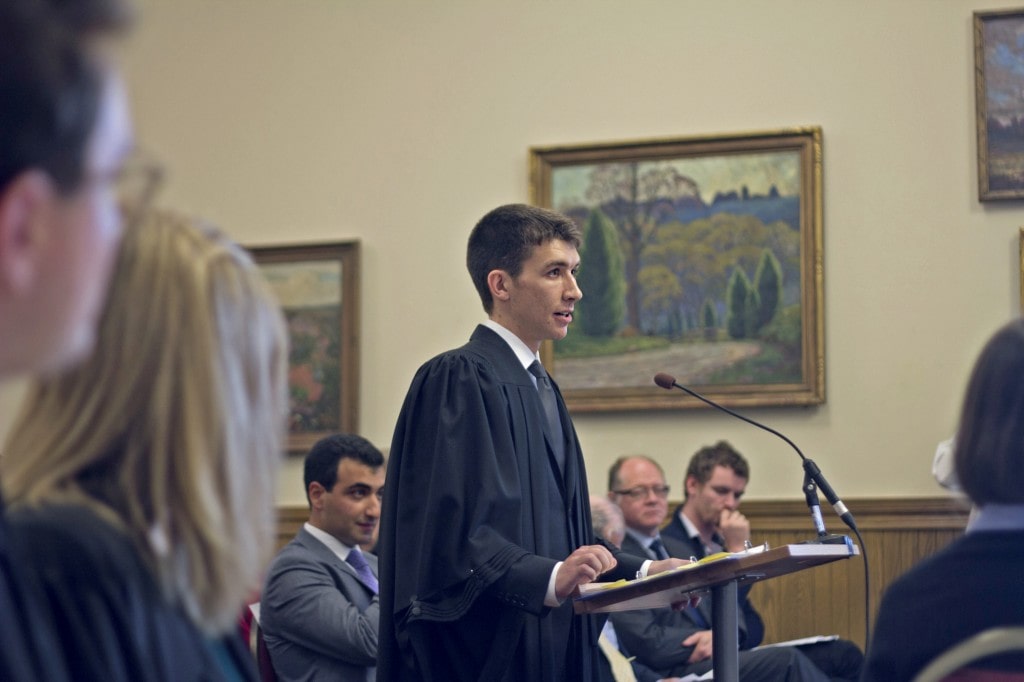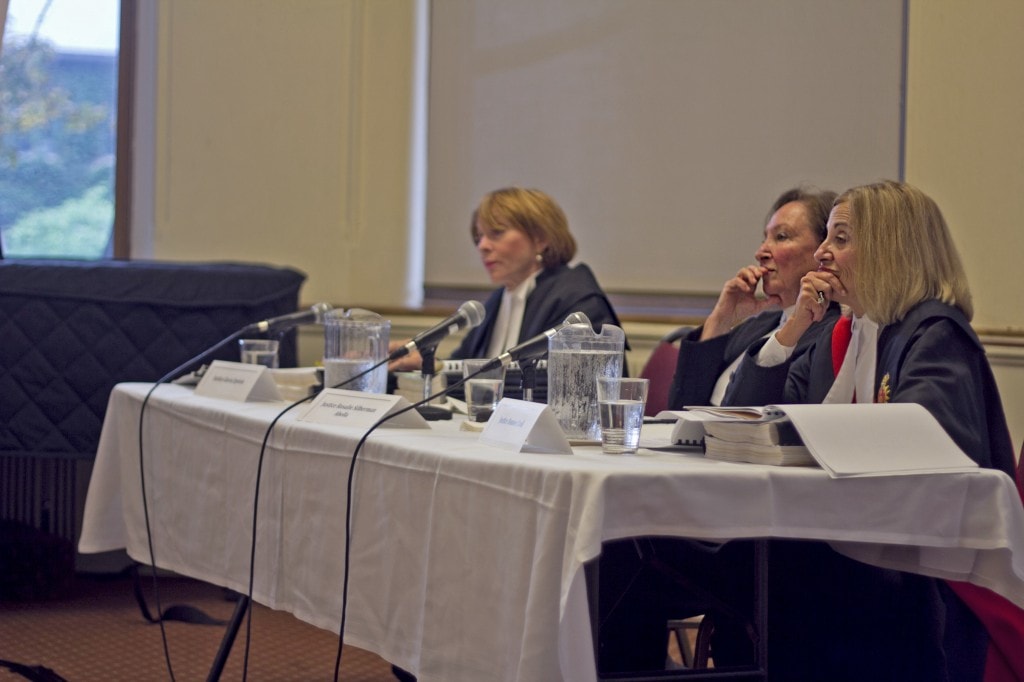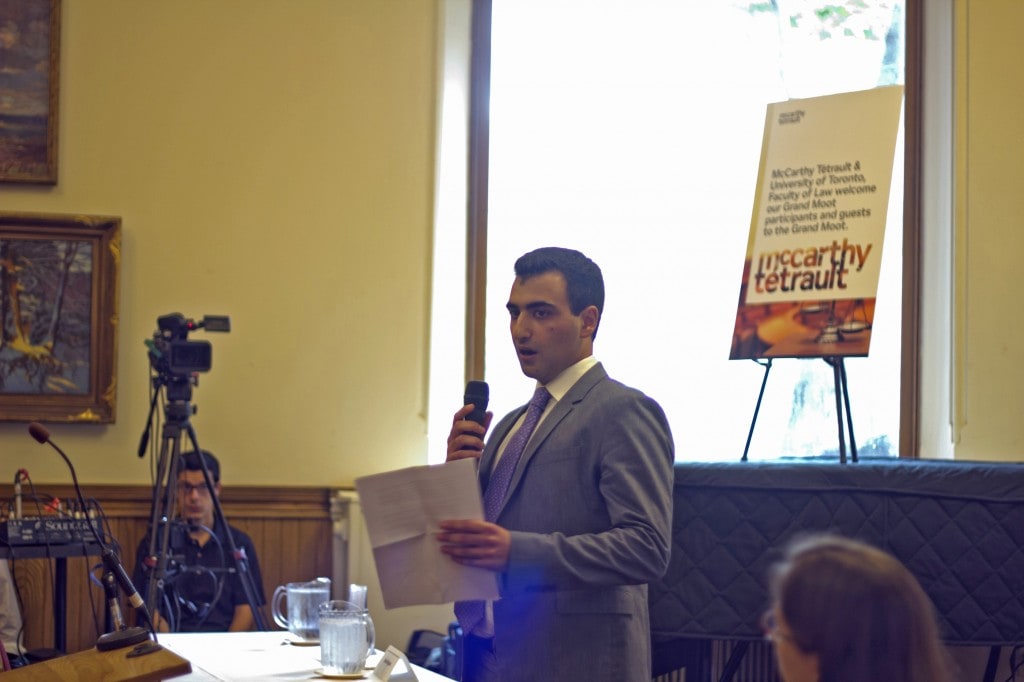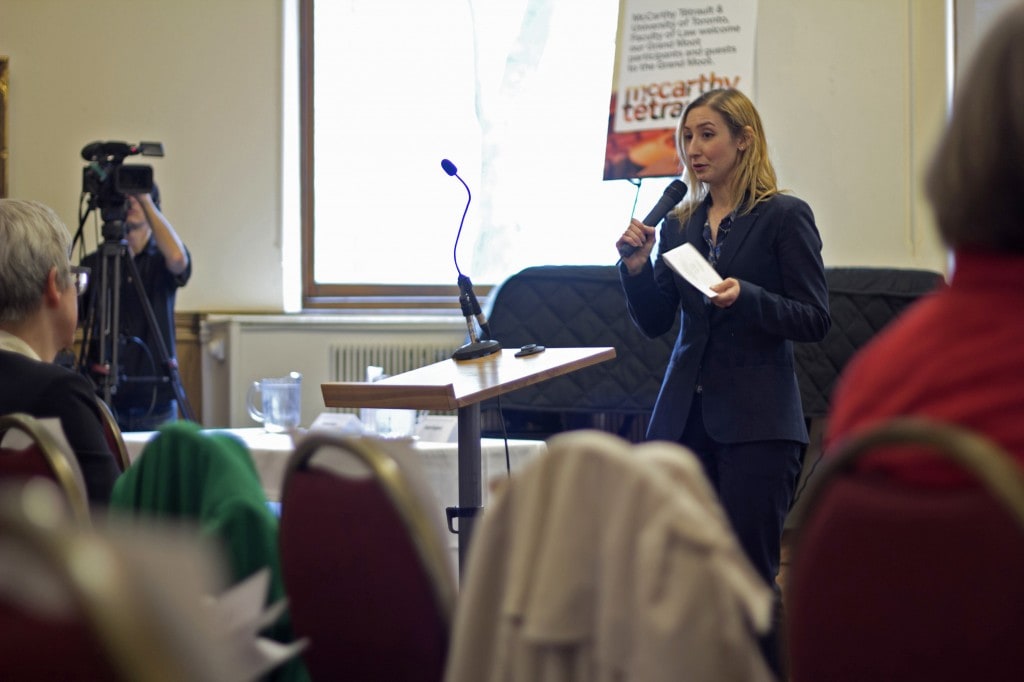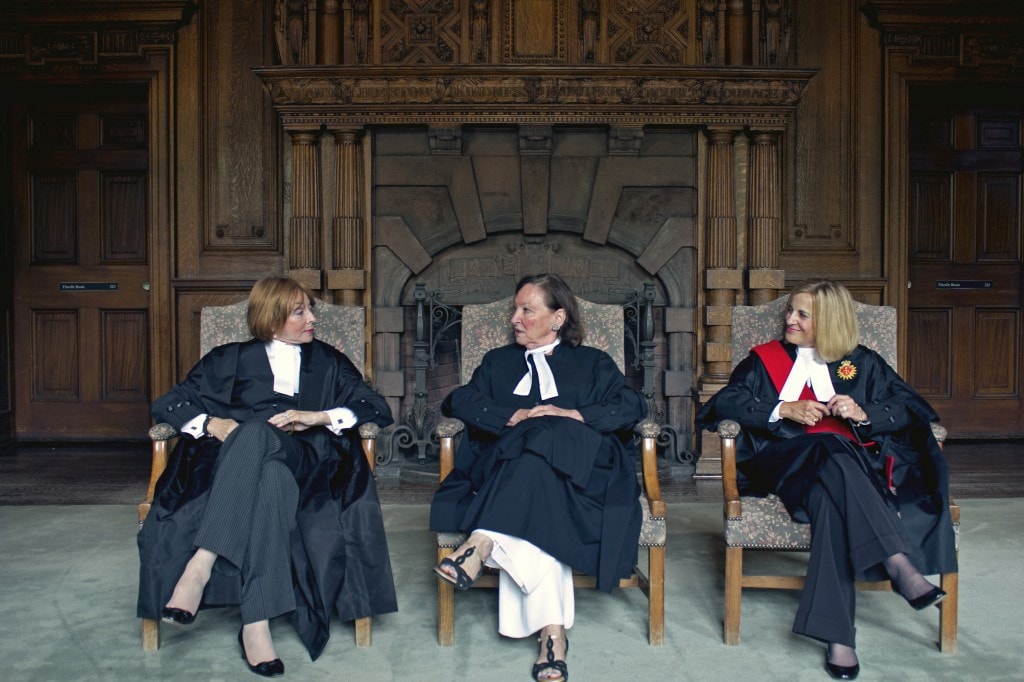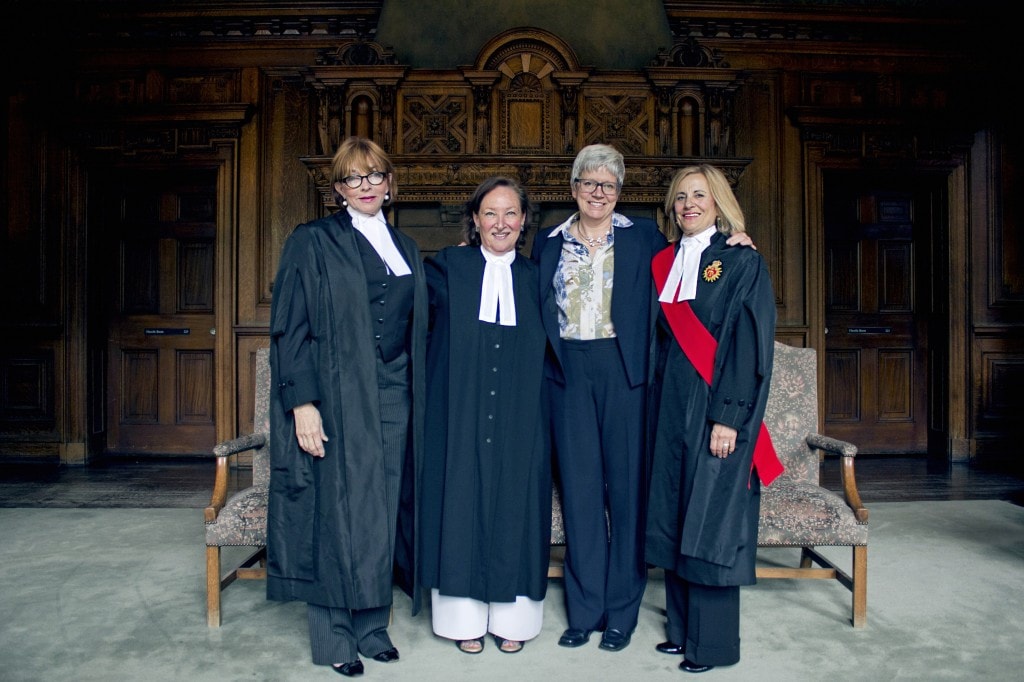Brett Hughes (2L) | Photographs by Nadia Guo (3L)
As is tradition, this year’s Grand Moot—“Tracking Data, Privacy and the Charter”—was a ripped-from-the-headlines case. The problem featured the shadowy leader of a decentralized criminal organization, tracking data on thousands of mostly innocent “Flavellians,” and a leak to a news organization about the surveillance. Previous Grand Moot problems have drawn inspiration from Breaking Bad and the G20 arrests.
Pursuant to Criminal Code amendments in the Protecting Flavellians from Online Crime Act, Flavelle’s national police obtained tracking data on 20,000 Flavellians who passed through an airport. The police hoped to use the data to catch the leader of a gun-smuggling ring.
Lauren Harper (3L) and Daniel Urquhart (3L) represented the appellant, the Flavelle Privacy Advocacy Centre (FPAC), and argued that this constituted an unreasonable search under section eight of the Canadian Charter of Rights and Freedoms. They focused on the number of persons targeted and the intimate nature of the information that can be revealed through location data. Examples included religious affiliation (from visits to a place of worship) and personal relationships (from repeated visits to certain houses or apartments).
Samuel Greene (2L) and Kathleen Elhatton-Lake (3L) represented the respondent, the Queen, and argued that there is no reasonable expectation of privacy in tracking data, or in the alternative that the search was reasonable. They argued that the tracking data is anonymous and is not identifiable without a warrant unless the owner of a phone publicly shares the phone number. They also focused on the importance of balancing privacy rights with the “legitimate needs of law enforcement.”
The panel of special guest judges was comprised of three alumni: Justice Rosalie Abella of the Supreme Court of Canada, Justice Gloria Epstein of the Ontario Court of Appeal, and Justice Bonnie Croll of the Ontario Superior Court of Justice.
Attendees learned that tracking data from Justice Epstein’s phone may be of limited utility as it is often misplaced, and has even been lost at a Blue Jays game. Justice Epstein asked Lauren Harper about the possibility of the phone’s tracking data not necessarily matching its owner’s location. Harper informed Justice Epstein that “normal people” keep their phone on them at all times.
Co-Chief Justices Jennifer Bates (4L) and Christophe Shammas (3L) organized the event, which included developing the problem in collaboration with professors Lisa Austin, Hamish Stewart, and Simon Stern.
Shammas pointed to two main inspirations: “We based it mostly on Bill C-13 and the recent CSEC airport Wi-Fi case.” Bill C-13 is also known as the Protecting Canadian Canadians from Online Crime Act, and known for Vic Toews’ “with us or with the child pornographers” comments (referring to an earlier iteration of the Bill). Its constitutionality has been put in doubt following the Supreme Court’s decision in R. v. Spencer.
The second part referred to class-action litigation launched by the British Columbia Civil Liberties Association (BCCLA) challenging the Communications Security Establishment Canada’s (CSEC) interception of private communication by Canadians and large-scale metadata collection on Canadians. The case was bolstered by revelations from Edward Snowden that CSEC tracked the wireless devices of Canadians who accessed Wi-Fi at a major Canadian airport for days after leaving the airport. (CSEC is supposed to conduct foreign surveillance, not domestic.)
Shammas said he was “glad that the Law School had the opportunity to see the hard work and dedication that the mooters put into the Grand Moot. They were able to bring a difficult set of facts to life through their very able submissions.”
Ed Note: The former headline read, “Grand ‘Moot’ Tackles Issues That Are Anything But.” We meant to convey that the issues discussed were apropos current events, i.e. anything but moot. However, a number of readers interpreted it to mean that the Grand Moot was anything but grand. Ultra Vires intended no such implication. We believe the Grand Moot was, and is, quite grand.


